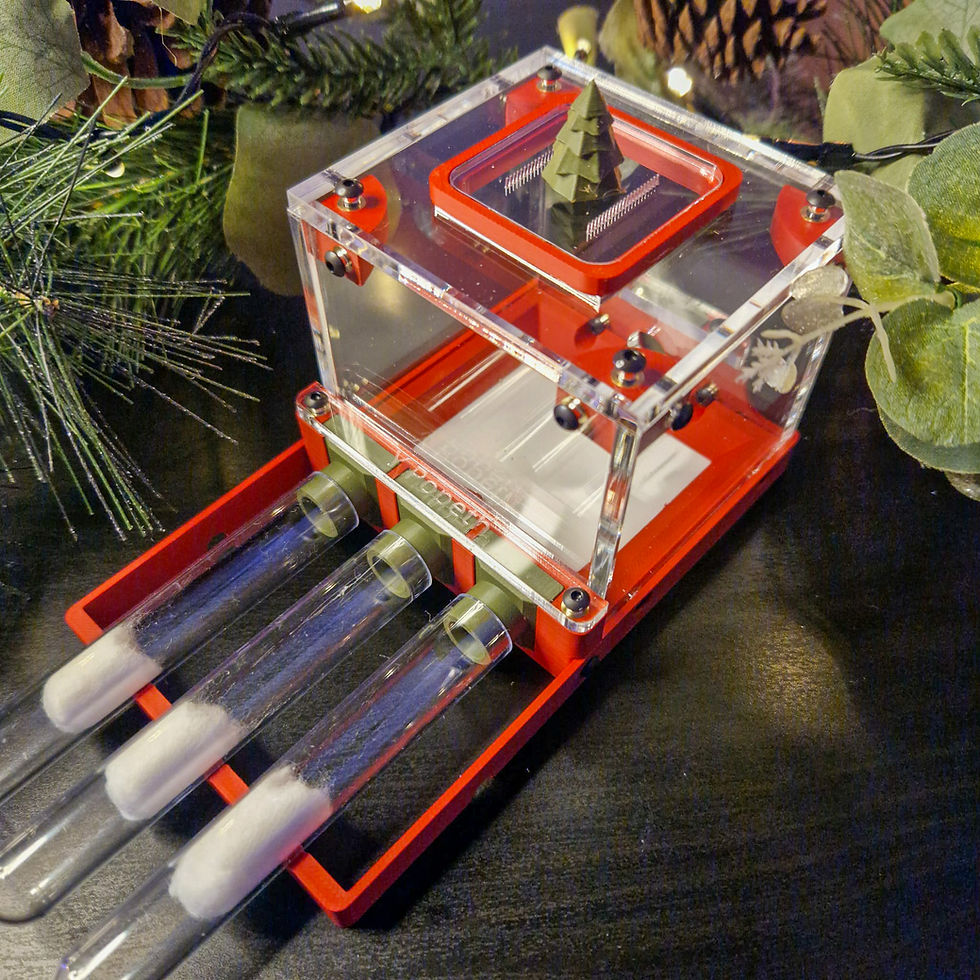Camponotus Cruentatus - Beginner (From 10 workers)
"The Defender Ant"
Cruentatus are a large and beautiful carpenter species found in southern Europe. With distinctive colouration their majors and queen have a vibrant orange/red like colouring on their gaster.
Being very active they are great for new keepers as they provide plenty of movement in their setup. But these colonies are difficult to found and require patience until they reach 10 workers and become more resilient to disturbance.
Commonly found in wooded environments like forests this species loves moist habitats. Dead and decaying wood it a favorite but in addition to this they can commonly frequent urban areas where sheds and decking can be found.
Informally named by us as the "Defender Ant" the Cruentatus earns their name because of their generally evasive behaviors, as scavengers they will seldom take on live prey but when a threat comes near their nest they rally quickly and using brute force quickly overwhelm and overcome ant invaders using their strong mandibles and acid glands. Hence the term "Defender Ants"
Cruentatus are highly polymorphic offering extremely diverse worker casts with Minor, Media and Major's.
Colony Size
Up to 10,000 workers
Queen Age; Up to 25 years
Fully Claustral - No food until first workers
Monogyne (single Queen per colony)
Temerature & Humidity
Nest 24 to 28 degrees
Nest 50%-60% Humidity | Outworld 30%-50% Humidity
Hibernation
Yes - October through March at 15 degrees.
Polymorphic (Different size casts)
Yes - Very polymorphic with Minor, Media and Major workers.
Sting | Bite
No Sting | Yes Majors can bite
Diet
Protein, Lots of Sugars, Lots of Water.
Large ants are always very hungry.
Nest Type
Natural, Acrylic, Sand, Earth, Glass, Plaster.
(These ants can chew through Ytong and Wood, caution in housing is needed.
Size
Queen - 14mm-17mm
Worker - 6mm-10mm
Major - 11mm-14mm
Development
Egg to Adult Worker - 9 to 12 weeks
Camponotus Cruentatus - Carpenter
It is illegal to release this colony into the wild in the UK, if you can no longer care for your colony please contact us immediately.






































